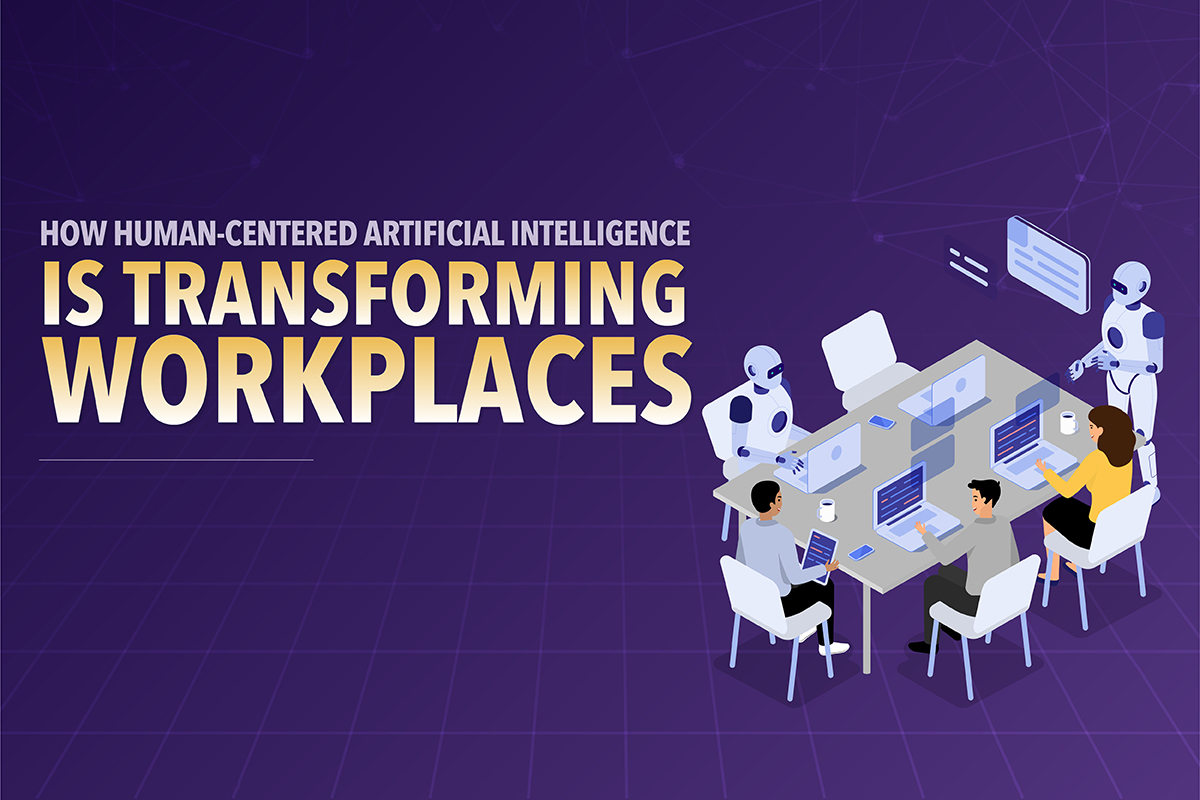What Is People Analytics?
Written by:
East Carolina University®
• Dec 5, 2024

What Is People Analytics?
An organization is only as good as its people. It can have the latest tools, tech, and data systems, but without the right people in the right roles, the organization will not deliver its intended impact. That is why effective human resources (HR) is so vital to a company’s success—it is integral to hiring, training, and retaining the best people possible.
While HR departments focus on building a company’s workforce, they can benefit from technological advances. Enter people analytics. Also known as HR analytics, this data-driven process can help HR managers devise more effective strategies for workforce development and issue mitigation.
As data science continues to gain a more prominent role in business, people analytics has the potential to become a driving force in the future of HR. For individuals interested in applying their bachelor of science in psychology to the corporate world, understanding what people analytics is and its applications can help them stand out in the field.
Defining People Analytics
People analytics uses data to gain insights into key aspects of a company’s workforce and workforce development. These analytics focus on people, but they are also used to spot strengths and vulnerabilities in other areas that involve human capital, such as office functions and processes.
Statistical modeling techniques such as descriptive or predictive analytics can help HR professionals create more streamlined employee and management processes. For example, these models can identify weaknesses in a company’s talent pipeline, problems in employee retention, or the effectiveness of HR-driven programs.
People analytics can also be used to integrate HR strategies with key corporate departments such as finance, marketing, and customer service to develop holistic strategies that consider what is best for the company as a whole rather than a single area.
When applied to HR, people analytics can be a vital tool regarding critical decision-making. Data-driven insights can help HR professionals make more effective, efficient decisions in every aspect of business the department touches, from recruitment and training to company culture. This efficiency can translate to improvements in talent development, employee production, and employee retention. These improvements can affect a company’s bottom line, particularly since replacing dissatisfied employees is costly.
Building a People Analytics Team
It is important to acknowledge that people analytics is not a one-person job. While HR professionals may act on the insights the data presents, they are typically assisted by a team that helps them gather and analyze that data.
The most common roles on a people analytics team include:
- Data scientist: This computer science specialist builds data models that are usually based on machine learning to extract and interpret focused business data.
- Data engineer: This software specialist builds and oversees systems that transform raw data from various sources into an analysis-friendly format.
- Data analyst: This specialist forms different conclusions based on data analysis and interpretation.
HR professionals develop specific questions about their workforce and work with the people analytics team to identify what types of data can help answer those questions.
Applying Psychology to People Analytics
When it comes to pursuing jobs with a psychology degree, HR can be a rewarding choice. Strong psychology skills mean that HR professionals bring a unique human perspective to the data of people analytics. While numbers can tell a company what is happening, this perspective can help determine why it is happening.
That insight can be used to develop strategies that address both the why and the what. By answering the first question, individuals with a background in the study of psychology can find solutions that address the second question to tackle root causes rather than superficial fixes.
Take a Step Toward the Future
People analytics is already key to HR, and as the technology evolves, it is likely to become even more essential. Those who develop a thorough understanding of people analytics and its applications in building teams can be a tremendous asset for any business interested in optimizing its workforce. And by applying psychology, this understanding can be even deeper.
The Online Bachelor of Arts in Psychology program at East Carolina University®️ can prepare you to successfully integrate psychology and human resources. Our curriculum focuses on core areas such as memory, information processing, and the biological basis of psychological phenomena. We also allow you to apply these concepts in controlled environments, allowing you to develop key skills such as interpersonal collaboration, communication, and critical thinking. This approach helps you develop the foundational knowledge and skill set needed to view human resources through a psychological lens and take a holistic approach to the profession.
Learn how ECU can help you become a trusted leader in a critical business role.
Recommended Readings:
11 Bachelor of Arts in Psychology Career Paths
What Is Organizational Psychology?
Sources:
Academy To Innovate HR, Building Your People Analytics Team: 6 Tips for Success
Academy To Innovate HR, People Analytics: An Essential Guide for HR
Indeed, Estimating the Costs of Employee Turnover
Psychology Today, “How To Supercharge People Analytics: Add Psychology”


